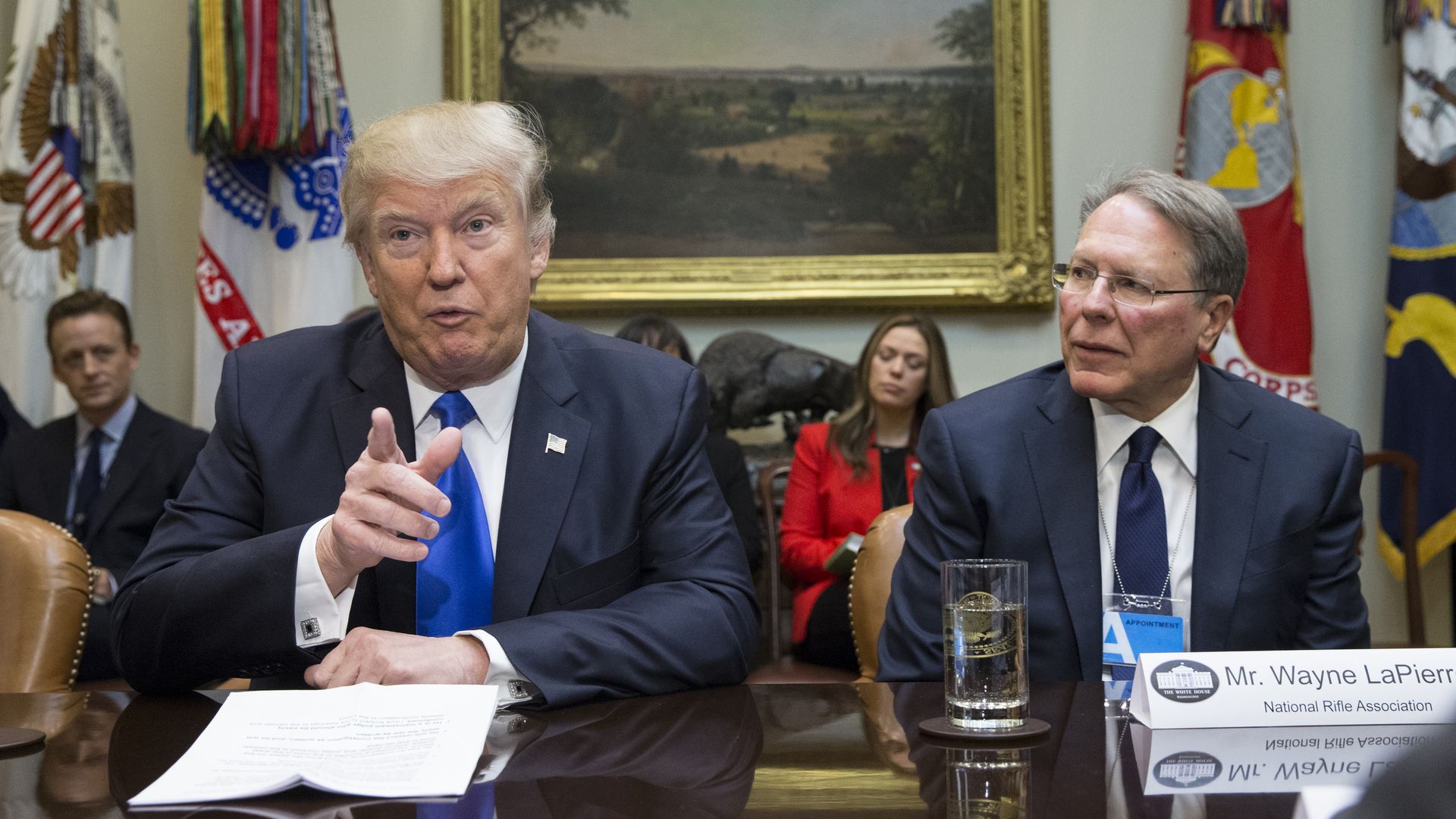Aug 20, 2019
Trump warns of "slippery slope" on gun control amid NRA phone call
Add Axios as your preferred source to
see more of our stories on Google.

President Donald Trump and NRA CEO Wayne LaPierre in the White House in 2017. Photo: Michael Reynolds - Pool/Getty Images
